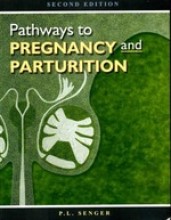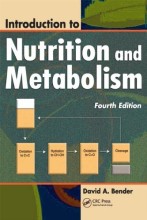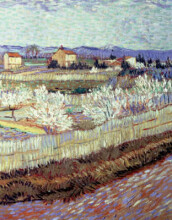Summary: An Introduction To Behavioral Endocrinology | 9780878936205 | Randy J Nelson
- This + 400k other summaries
- A unique study and practice tool
- Never study anything twice again
- Get the grades you hope for
- 100% sure, 100% understanding
Read the summary and the most important questions on An introduction to behavioral endocrinology | 9780878936205 | Randy J. Nelson.
-
1 The Study of Behavioral Endocrinology
This is a preview. There are 46 more flashcards available for chapter 1
Show more cards here -
What is the difference between males castrated at birth and those castrated after puberty?
Males castrated when very young do not develop any hair growth, sexual behaviour and their voice does not change. Males castrated after puberty has hit have developed hair growth and sexual behaviour and their voice already has changed. They experience a diminished hair growth and sexual behaviour whilst their voice will stay low.
-
What are Tinbergens four questions of analysis?
- Immediate causation (Mechanisms/methods); What is the trigger?
- Development; What is the genetic and developmental mechanism?
- Evolution; How is it evolved?
- Adaptive function; What is the adaptive advantage?
-
1.1 Historical Roots of Behavior Endocrinology
This is a preview. There are 17 more flashcards available for chapter 1.1
Show more cards here -
How do hormones affect behaviour?
By affecting individual's sensory systems, integrators, and/or effectors
-
What produce the testes and what influence this?
they produce and secrete a hormone called testosterone that influences sexual behavior, aggression, territoriality, hibernation, and migration and other behaviors that differentiate males from females
-
What is the most common manipulation of the endocrine system hystorically?
The castration of the testes.
-
What effects have castration in humans?
Castration in huumans often has little or no effect on physical appearence or future sexual behavior when performed after the unfortunate individual attains sexual maturation
-
1.1.1 Berthold's Experiment
This is a preview. There are 6 more flashcards available for chapter 1.1.1
Show more cards here -
what is typical for roosters (Hahn)?
- mate with hens, fight with other roosters and roosters crow
- are larger than hens and immature birds and have distinctive plumage
-
What did Berthold's experiment demonstrate?
That a substance produced by the testes could travel through the bloodstreem and eventually could affect behaviour.
-
what is the difference between roosters and capons (have been castrated)?
capons do not show many of the behavioral and physical characteristics of roosters
-
What happens when a male chick is castrated?
Caponization -> small comb and wattles, no interest in hens, no agression towards other males.
- Higher grades + faster learning
- Never study anything twice
- 100% sure, 100% understanding
Topics related to Summary: An Introduction To Behavioral Endocrinology
-
The Study of Behavioral Endocrinology - What are Hormones?
-
The Study of Behavioral Endocrinology - The Study of Behavior
-
The Major Vertebrate Hormones - Protein and Peptide Hormones - Hypothalamic hormones
-
The Major Vertebrate Hormones - Protein and Peptide Hormones - Anterior pituitary hormones
-
The Major Vertebrate Hormones - Protein and Peptide Hormones - Posterior pituitary hormones
-
The Endocrine System - Endocrine Glands - Gonads
-
Sex Differences in Behavior: Sex Determination and Differentiation
-
Sex Differences in Behavior: Sex Determination and Differentiation - Neural bases of Mamalian Sex Differences
-
Male Reproductive Behavior - Male Reproductive Behavior in Reptiles
-
Female Reproductive Behavior - Components of Female Sexual Behavior
-
Female Reproductive Behavior - Female Reproductive Cycles - Types of Reproductive Cycles
-
Female Reproductive Behavior - Female Reproductive Cycles - Social en Environmental Effects on Reproductive Cycle
-
Parental Behavior - Parental Investment Theory
-
Homeostasis and Behavior - Basic concepts in Homeostasis - Fluid Balance
-
Homeostasis and Behavior - Energy Balance - Metabolism during the Well-Fed State
-
Homeostasis and Behavior - Energy Balance - Metabolism during the Fasting State
-
Homeostasis and Behavior - Disordered Energy Metabolism
-
Homeostasis and Behavior - Control of Food Intake - CEntral Signals: The Role of the Hypothalamus
-
Biological Rhythms - Types of Biological Clocks and Rhythms
-
Reproduction - Parental Behaviour
-
Regulation of Homeostasis - Homeostasis and Behaviour
-
Stress, Social Behaviour and Learning - Stress
-
Stress, Social Behaviour and Learning - Learning and Memory
































